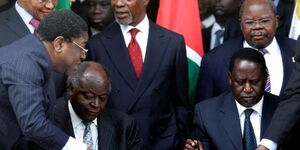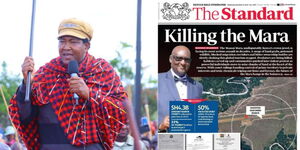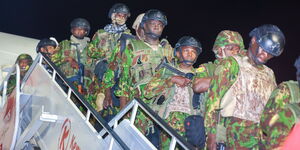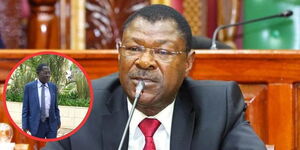Dr Danvas Makori, a commissioner of the National Cohesion and Integration Commission (NCIC), has exposed the legal gaps that have allowed for politicians to get away with hate speech unscathed.
Speaking during an interview on Radio Generation on Thursday morning, Makori relayed that the very definition of hate speech would make it hard to prove in court.
He explained that although the commission was set up to address the vice in the aftermath of the 2007 post-election violence, the laws had been set up in a way that made it almost impossible to prosecute or even prove hate speech.
"Part of the settlement of Agenda 4 National Accord was to set up a commission like this to tick a box, but the way the law was created was weak and very intentional," he said.
"They set the threshold for the definition of hate speech very high. If you go to court right now and you look at the definition of hate speech, before you convict someone of that or even prove that, it is a very uphill task."
As such, he relayed that they had sought an amendment to the law in Parliament, but it had gone nowhere in the three to four years since it was brought up.
He alluded to the fact that this delay might have been caused by the fact that most culprits of hate speech are MPs, and thus, they were delaying the bill intentionally.
"They would not want us to hold them accountable, so it is a back-and-forth," Makori said.
Despite several summonses of politicians for this offence, none have yet been convicted or even charged for hate speech.
What is Hate Speech
According to the NCIC, a person can be accused of hate speech if they disseminate material "which is threatening, abusive or insulting or involves the use of threatening, abusive or insulting words or behaviour"
One therefore commits the offence if they intend to stir up ethnic hatred, or, having regard to all the circumstances, ethnic hatred is likely to be stirred up.
Ethnic hatred, in this context, means hatred against a group of persons defined by reference to colour, race, nationality (including citizenship) or ethnic or national origins.
The hate speech may be perpetrated by using threatening, abusive or insulting words or behaviour, or by displaying any written material that is likely to cause this ethnic bias.
Others include publishing or distributing written material, presenting or directing the public performance of a play, distributing shows, plays, or a recording of visual images, and providing, producing or directing a programme that is likely to stir up ethnic hatred.
Any person who commits an offence of hate speech is liable to a fine not exceeding Ksh1 million or to imprisonment for a term not exceeding three years or to both.












